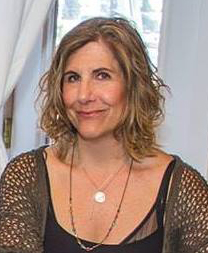 You just call on me brother, when you need a hand
You just call on me brother, when you need a hand
We all need somebody to lean on
I just might have a problem that you’ll understand
We all need somebody to lean on
— Bill Withers
Talking about depression and anxiety
One of the most important things we can do when struggling with mild depression or anxiety is talk to someone about it. Whether it’s a friend, family member, professional or our primary care providers, talking about what we’re feeling is one of the first and most important steps we can take to mind our minds. But sometimes, that’s easier said than done.
In October of 2018, the Mind Your Mind Central Oregon team spoke directly with 300 residents in each of our three counties to understand their thoughts on everyday mental health. Here are some interesting things we learned from our tri-county neighbors:
While 90% of us believe that mild depression, stress and anxiety are common, only 57% of us are comfortable with others knowing.
So what can we do to inspire a culture of support and acceptance around every day mental health if only half of us are comfortable with others knowing when we’re struggling?
We have to lean on each other.
Especially now, when tensions are high and we’re feeling more divided than ever.
When we asked Central Oregonians their reasons for not seeking help for mild depression and anxiety, residents from Crook, Deschutes and Jefferson counties said this:
“Personal reasons”
“People take care of themselves”
“I’m uncomfortable talking to people”
Starting conversations
So how can we — in our communities — reduce the shame and stigma associated with seeking self help and/or professional support? We have to start those conversations. It’s one of the ways to make mental health part of our everyday lives. Here are some really great tips from Kaiser Permanente to help us talk about depression.
For additional local resources in Crook, Deschutes and Jefferson counties, visit our Mind Your Mind Central Oregon website resource page.
Supporting others while taking care of ourselves
In addition to talking about our own mental health challenges, we need to learn how to support and take care of each other. One of my close family members has been struggling with depression and anxiety for quite some time now. I’m constantly struggling to be supportive while minding my own mind as well. I feel worried, helpless and frustrated. I’m usually trying to help or “fix things” when I probably need to work on just listening. It’s hard to know what to say. I do a lot of research to help me navigate conversations with this person I care about. Sometimes I do well and other times I feel judgemental and lose my patience. Here’s an article I read recently from Healthline titled How to help a depressed friend.
One thing I’ve learned is that minding my mind takes effort, practice and vulnerability. Sharing my personal family story has been a healing process. I also recognize that as a middle-aged, white woman living in Bend, I represent only one Central Oregon voice. We need more Central Oregon voices to help bring everyday mental health conversations to life in our region. We need to hear different perspectives about minding our minds, and how to reduce the stigma around mental health challenges. If you are interested in becoming a champion for everyday mental health awareness, we would love to hear from you. We can help you share your story and inspire others to do the same.
Thanks for reading. Stay healthy and enjoy the great weather! I’ll leave you with a message from Mr. Bill Withers…
 Linda Quon is Vice President and Director of Communication at Quon Design and Communication. Linda is working to promote everyday mental health awareness in partnership with Deschutes County Health Services and Central Oregon Health Council — which includes providers and health advocates from Crook, Jefferson, and Deschutes Counties. Linda was born and raised in Southern California and moved to Central Oregon with her husband and two children in 2005. Her mother lived with Schizophrenia and bi-polar disorder and her oldest brother also experienced bi-polar disorder. With support from family, friends, therapists and primary care providers, Linda has been navigating the world of mental illness most of her life — including her own struggles with mild anxiety and depression. Linda is proud to work as an advocate for mental health and a blogger for Mind Your Mind Central Oregon.
Linda Quon is Vice President and Director of Communication at Quon Design and Communication. Linda is working to promote everyday mental health awareness in partnership with Deschutes County Health Services and Central Oregon Health Council — which includes providers and health advocates from Crook, Jefferson, and Deschutes Counties. Linda was born and raised in Southern California and moved to Central Oregon with her husband and two children in 2005. Her mother lived with Schizophrenia and bi-polar disorder and her oldest brother also experienced bi-polar disorder. With support from family, friends, therapists and primary care providers, Linda has been navigating the world of mental illness most of her life — including her own struggles with mild anxiety and depression. Linda is proud to work as an advocate for mental health and a blogger for Mind Your Mind Central Oregon.
